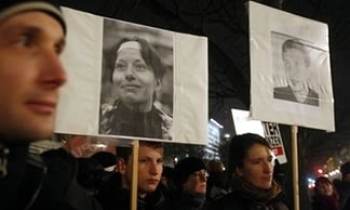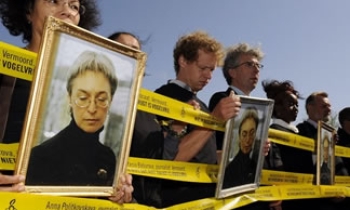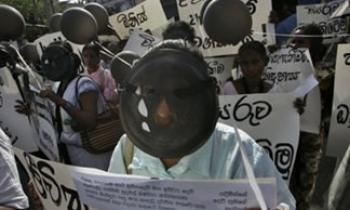Life for investigative journalists in Brazil is increasingly becoming difficult. This month alone one journalist has been abducted (and subsequently released), one threatened and thus forced into hiding, while a newspaper has been barred by a court to write on a trafficiking case in which investigations are on.

A Brazilian television reporter abducted by a São Paulo criminal gang was released unharmed August 14 after his station broadcast a message by the kidnappers denouncing prison conditions. Reporter Guilherme de Azevedo Portanova and technician Alexandre Coelho Calado of the São Paulo-based TV Globo network were seized on Saturday last by members of the First Capital Command (Primeiro Comando de la Capital - PCC).
Calado was freed with a recorded message by the gang demanding improved conditions for prisoners in Brazilian jails. The kidnappers warned Calado that Portanova would be killed if TV Globo did not broadcast the message. TV Globo aired the three-minute tape on Sunday of a masked man who identified himself as a PCC member. TV Globo ran the tape after consulting international security agencies. Local police told the press they feared the broadcast could trigger further kidnappings.
According to the Committee to Protect Journalists (CPJ), Portanova covered a wave of attacks by the PCC in São Paulo in May. The PCC was formed in 1993 by prisoners in São Paulo's overcrowded and violent prisons, but today is involved in criminal activity throughout São Paulo. In May, PCC protests against a plan to transfer jailed gang leaders from the city to a remote prison left more than 200 people dead.
Globo said in a statement on Sunday last that it only showed the video after consulting with the Belgium-based International News Safety Institute (INSI) and the risk-assessment company called The AKE Group, saying it was advised to make the broadcast because of the urgency of the situation.

O Dia reporter Maria Mazzei and her family have been forced into hiding after receiving threats following her reports about the trafficking in human bodies in Rio de Janeiro, and her claim that employees of the Medical Forensic Institute (IML) were selling cadavers to the so-called "Máfia dos Corpos" (Body Mafia).
Mazzei, according to Reporters sans Frontières (RSF), through a series of articles had revealed that bodies are stolen in order to swindle insurance companies. On August 12, she interviewed former naval officer Yussef Georges Sarkis, who allegedly simulated his own death to get a life insurance indemnity of 1 million reals. Sarkis claimed in the interview, which was recorded, that his friends included kidnappers and police officers.
Mazzei began receiving telephone threats after the articles were published, while her neighbours reported seeing a car circling her home. O Dia reported this to the police and then, with a police escort, moved Mazzei and her family to a safe location. Medical Forensic Institute staff, funeral parlour employees and insurance fraud specialists are all allegedly involved in the body-trafficking exposed by Mazzei.
On August 4, a civil tribunal in the city of São José do Rio Preto, barred newspaper Bom Dia to report on a case of international medicine trafficking uncovered in the city, basing the decision on the confidentiality of the legal investigation into the case.
The judge's ruling was in response to a request presented on the afternoon of August 4 by State Prosecutor Mauro César Fileto, after the newspaper revealed in that day's edition that his son, Mauro Fileto Filho, had been detained in the United States because of his possible links to the crime. The city of São José do Rio Preto is located in the state of São Paulo, southeastern Brazil.

The judge ordered the newspaper and its editor-in-chief to abstain from publishing any information alluding to the investigation of the case as long as Mauro Fileto Filho is considered a suspect.
On 18 July 2006, José UrsÃlio, editor-in-chief of the Diario de MarÃlia newspaper, was the intended target of an assassination attempt, by a contract killer who confused him with another newspaper employee. The attack took place at the entrance to the newspaper's headquarters, in MarÃlia, São Paulo district. Contract killer Evandro Quina shot at Almir Adauto, a driver for the newspaper, twice, mistaking Adauto for UrsÃlio. Adauto was not injured. Quina was arrested by police.
UrsÃlio, acording to Associação Brasileira de Jornalismo Investigativo, did not discard the possibility that the attack was related to his critical articles on the city's former mayor, José Abelardo Guimarães Camarinha. The journalist said he had been threatened on the street for that reason by Camarinha's assistants, and had also received other threats and been offered bribes.
Meanwhile, the Inter American Press Association (IAPA) has offered its support to a call by Brazil's leading press organisations and news media for an end to the violence unleashed by organised crime, and urged state and federal officials to coordinate efforts to attack this scourge.
"We are concerned at the escalation of violence that Brazil has witnessed in recent weeks," said Gonzalo MarroquÃn, chairman of the IAPA's Committee on Freedom of the Press and Information. "It has become a matter of urgency for the government to take charge of the matter and put a halt to this violence."

While the problem of violence against the press was most evident in recent days in São Paulo and Rio de Janeiro, previous claims by IAPA indicate that restrictions on press freedom in the form of threats, intimidation and assaults have been repeatedly occurring in all the Brazilian states.
The IAPA representative regretted that pressure exerted by the kidnappers had forced the television channel to broadcast a message about the situation of prisons in Brazil. He recalled that IAPA had been denouncing violence against news media and individual journalists in its reports and resolutions, as well as in its book titled "Risk Map for Journalists," which recounts the difficulties and dangers that reporters face in covering news in Brazil, Colombia and Mexico.
MarroquÃn said the issue of how to face violence, from the press's point of view, will be one of the main topics of discussion during IAPA's General Assembly in late September in Mexico City. In the same city, within the next few weeks, a seminar will be held on "The Press and the Illicit Drug Trade." IAPA also plans to hold a seminar-training course for Brazilian journalists in December on reporting in hostile environments.









